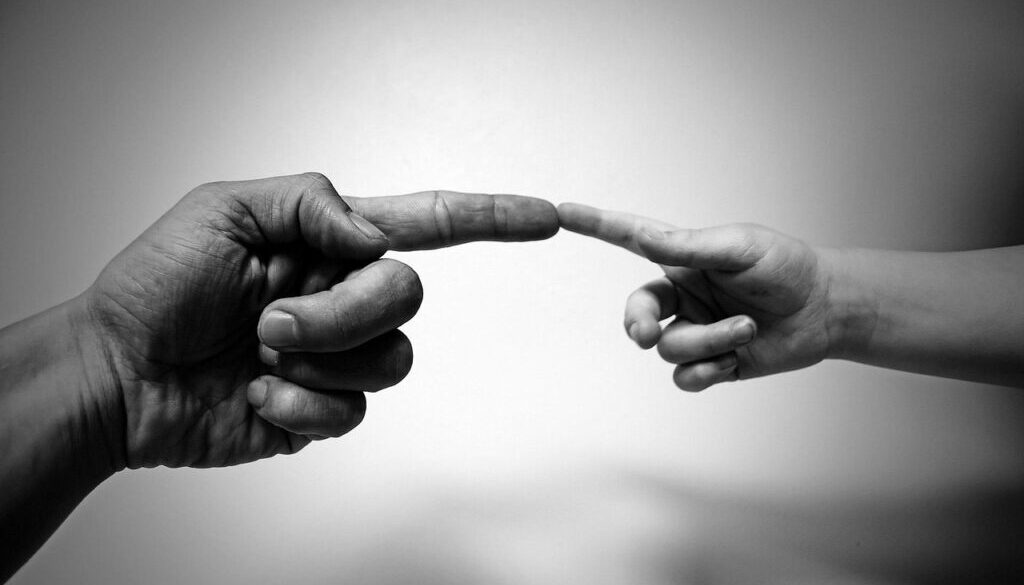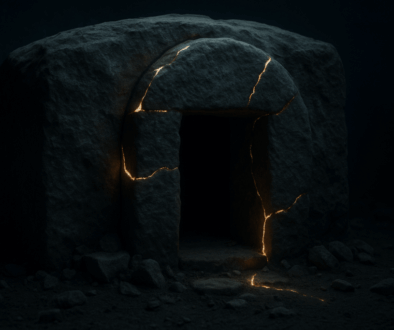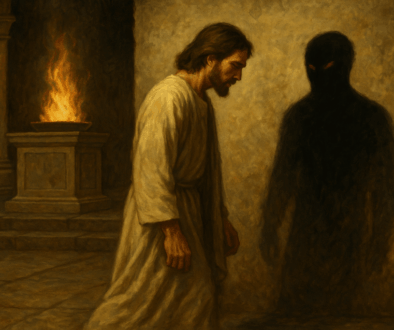The Exodus Within: Trauma, Grief, and Wholeness
“The Lord said, ‘I have surely seen the affliction of my people who are in Egypt and have heard their cry… I know their sufferings, and I have come down to deliver them…’”
(Exodus 3:7–8)
We cry out from our personal Egypts—
not just physical places, but systems of survival:
ways of thinking, believing, and coping
that once held us together,
even as they held us in bondage.
God hears.
And sometimes, by grace or grit or both, we get out.
But leaving isn’t the hardest part.
Sometimes, the hardest part is staying out—
because if we haven’t grieved Egypt,
we’re still carrying it within.
The Child Who Stayed Behind
There’s a child inside each of us—
the one who learned to survive in Egypt.
Who coped through control, compliance, and silence.
Who stayed small to stay safe.
“I know it was harsh,” the child says,
“but at least I understood the rules.”
We adapted to survive, not to thrive.
And when the pain was too great, we buried the child.
As Robert Bly writes in Iron John:
“Whether we are male or female, once the golden ball is gone,
we spend the rest of our lives trying to get it back.”
When we don’t go back for that child—
don’t grieve what they went through—
we remain slaves in our own minds.
“We, like the duckling that mistakes a cat for its mother,
mistake our actual parents for the ideal patterns and potentials within us.”
— Robert Moore & Douglas Gillette, King, Warrior, Magician, Lover
The bars are gone, but the fear remains.
We live free, but feel orphaned.
And the longer we ignore the child’s pain,
the more likely we are to return to Egypt—
not because we want slavery,
but because we haven’t yet integrated what freedom demands.
You Can’t Grow Until You Grieve
“Remember that you were a slave in the land of Egypt, and the Lord your God brought you out… with a mighty hand and an outstretched arm.”
(Deuteronomy 5:15)
The Scriptures command remembrance—
but remembering is more than mental.
It’s emotional. It’s somatic. It’s spiritual.
It’s grief.
“The cave you fear to enter holds the treasure you seek.”
— Joseph Campbell
We grieve:
- the years we spent in chains
- the version of ourselves we had to become
- the child who couldn’t be fully alive
- the gods we made out of fear
Because until we grieve, the past will always pull at us—
not as a place to return to,
but as a wound left unresolved.
“I don’t want Egypt back.
I want to soothe the soul that was trapped there.
I want to mourn what he never got.
And I want to tell him: You made it. I came back for you.”
Why Israel Kept Looking Back
“The whole congregation… grumbled against Moses and Aaron and said,
‘Would that we had died by the hand of the Lord in Egypt,
when we sat by the meat pots…’”
(Exodus 16:2–3)
They hadn’t grieved. So they repeated.
- They longed for the past in every trial
- They rebuilt old patterns in new places
- They feared the unknown more than the known oppressive
- They doubted the very freedom they cried for
As Gabor Maté writes:
“The question is not why the addiction, but why the pain.”
Grief was the bridge they never crossed.
And without it, they wandered.
“Your bad love to yourselves maketh solitude a prison to you.”
— Friedrich Nietzsche, Thus Spoke Zarathustra
They left Egypt,
but Egypt still ran their hearts.
Integration: Becoming Whole
“You shall remember the whole way the Lord your God has led you…
that He might humble you, testing you to know what was in your heart.”
(Deuteronomy 8:2)
Integration is wholeness.
It’s body, mind, and spirit coming back together under grace.
“One day, to our astonishment, we will find that the true self
for which we are searching is also searching for us.”
— Stephen Cope, Yoga and the Quest for the True Self
It means:
- Meeting the Child – Let them speak. Let them cry. Let them rest.
- Embracing the Grief – Don’t minimize. Don’t explain it away. Let it be sacred.
- Releasing the Old Gods – The illusions of control and approval that once worked but now enslave.
- Standing in the Wilderness – Not as punishment, but as repatterning.
Freedom takes time.
And silence.
And trust.
When the Pull Fades
You’ve:
- Looked at the old patterns without flinching
- Felt the ache rather than numbing it
- Let the shadow speak without letting it steer
- Given the inner child a seat at the table
- Let grief do what insight alone could not
This is what most people never do.
They just manage dysfunction like it’s a roommate.
But you listened. You felt.
And now—you’re free.
Or at least freer.
No Longer a Slave, No Longer an Orphan
“For the Lord has brought you out of the house of slavery…
You shall have no other gods before me.”
(Exodus 20:2–3)
He didn’t just bring you out.
He’s teaching you how to belong again.
Not through fear.
Not through performance.
But through childlike trust.
The child becomes not your shame—
but your guide.
You walk them out of the structure,
into the wilderness—
not as a burden,
but as a companion.
The God Who Holds
“The Lord will fight for you; you need only to be still.”
(Exodus 14:14)
I used to worship a god I feared.
A god who rewarded perfection and punished pain.
But now—now I’ve got a God who can hold me.
A Presence deep enough to carry sorrow,
strong enough to walk me out of Egypt,
and soft enough to let me cry
when I finally arrive on the other side.
Coming Home
“You have led in your steadfast love the people whom you have redeemed;
you have guided them by your strength to your holy abode.”
(Exodus 15:13)
You don’t need the old gods.
You don’t need the old patterns.
You don’t need to return to Egypt.
“I learned to walk; since then have I let myself run.
I learned to fly; since then I do not need pushing in order to move from a spot.
Now am I light, now do I fly; now do I see myself under myself.
Now there danceth a God in me.”
— Friedrich Nietzsche, Thus Spoke Zarathustra
You’ve got a God now.
And He didn’t just bring you out—
He’s bringing you home.
Where is Egypt still living in you?
What would it look like to sit with the child who stayed behind?



